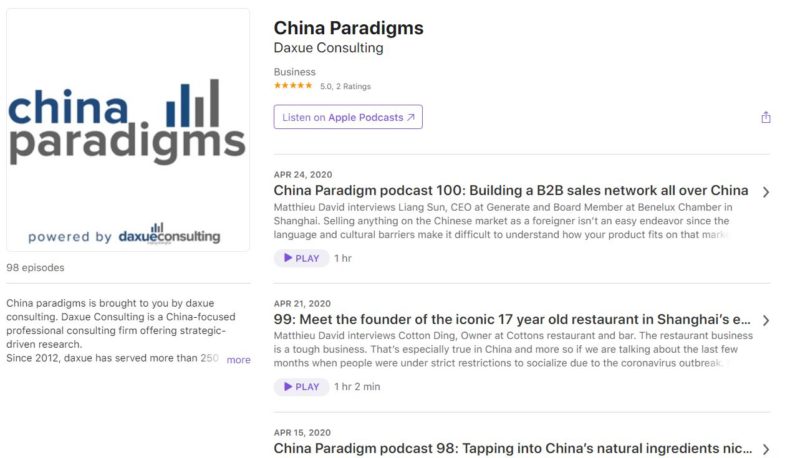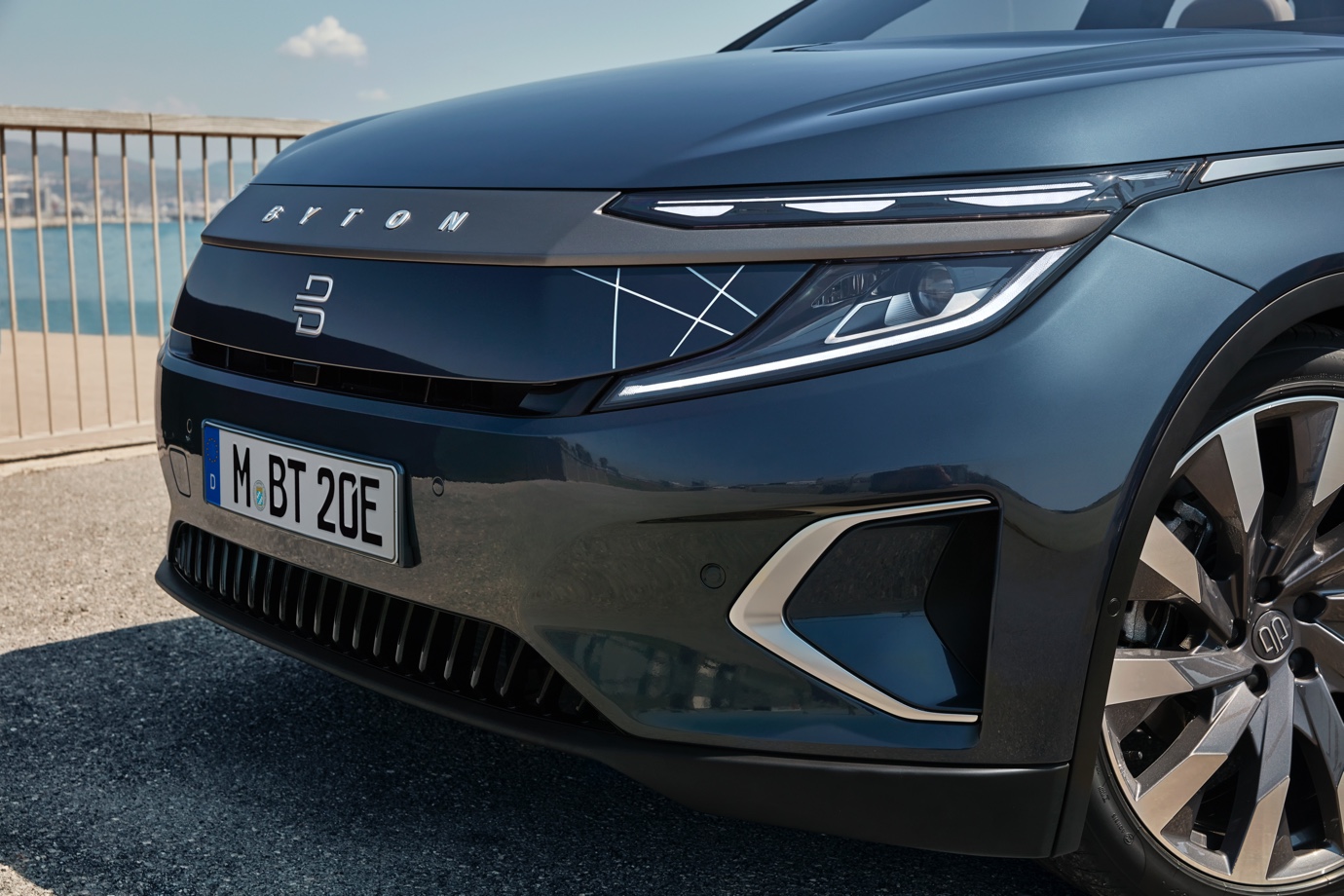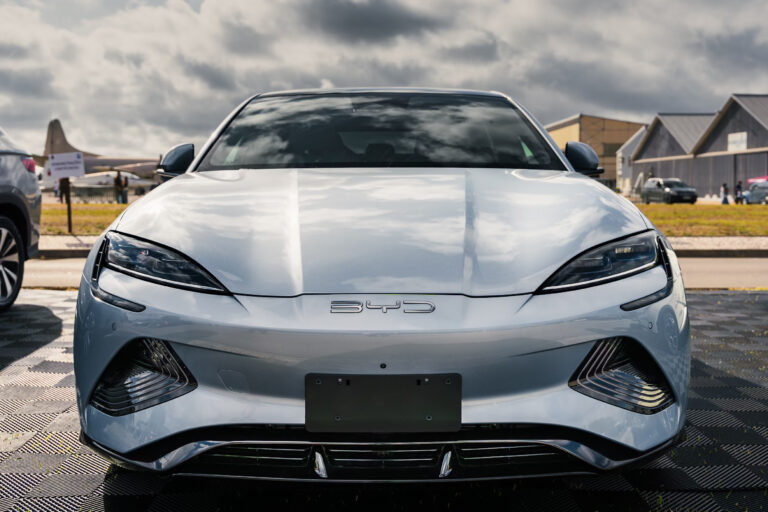Climate change forces us to rethink transportation, electric vehicles might be one of the solutions. It is only the prelude of the technology but some brands like Tesla are already overwhelming the sector. The Chinese auto market is one of the biggest in the world. Byton is a Chinese brand with high ambitions. The company is developing smart and autonomous cars and is backed by the Chinese government who wants more energy independence. Will the ‘Chinese Tesla’ brand be successful?
Discovering Byton
The Chinese brand from Nanjing was created in 2018. The company is hold by Tencent Holdings. People from all around the world are working in the company: The CEO, C.Breitfeld was previously working on the BMW i8. D.Twohig was the chief engineer of the Alpine 110. Most of the staff were formerly working on ambitious projects of other car brands. The production is in Nanjing, R&D in Santa Clara and Design in Munich. The company structure highlight that even if the company is Chinese, there is an international environment inside the company. The purpose is to produce the best Tesla killer.
M-Byte, the smart Chinese electric cars
The company’s main product is the M-Byte electric SUV. This model will be launched in 2021 but is available for pre-order for 56,000 euros. Over 65,000 cars were already pre-ordered and around 25,000 just in Europe. It features a 50 inches screen and an informative voice helper Alexa developed with Amazon. The purpose is to create a smart device on wheels: connected, possibility of driving alone.
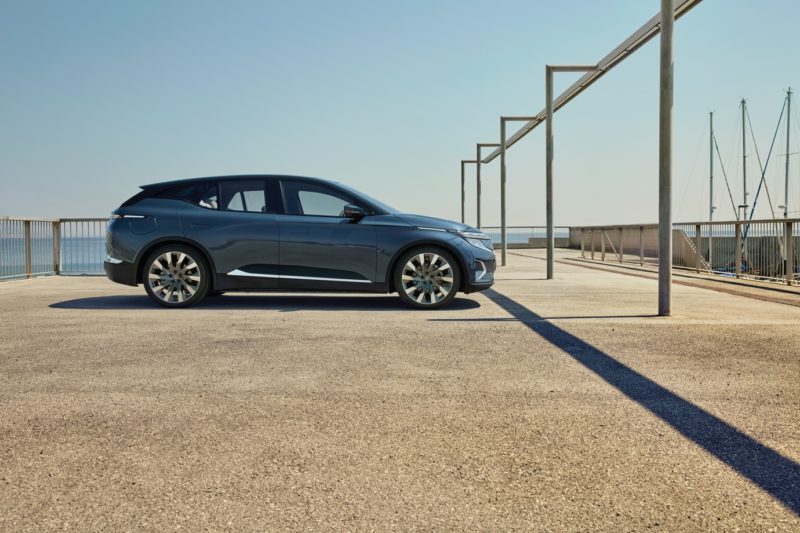
[Source: Byton.com – M-Byte electric SUV]
Description of the M-Byte
Starting with the specs of this vehicle: the 4.87 meter long electric SUV is available in two versions. The entry-level model is a version with a single engine of 272 hp and a 72 kWh battery. It offers an autonomy range of 360 km in the WLTP cycle. The second, more powerful version, with 408 hp and a 95 kWh battery, has an autonomous range of 435 to 460 km depending on the transmission mode. There are few brand stores around the world. The Chinese brand focus on online selling which reduce massively costs. They understood that new generations like millennials are used to smartphones for any use. Even buying a car online is not a problem anymore. This could be an issue with older generations, but it became common.
The state is helping new industries with purposes
China: an evolving production
Now China is more focus over quality. Matthieu Rochette Schneider, CEO Asia of 100degrés, speaks about a transition between ‘made in China’ and ‘created in China’. Brands like Byton symbolize how the Chinese economy changed these past decades. In the past the world factory because many foreign companies went there to relocate, it is now a center of creation. Huawei is another good example. Before the company was producing cheap smartphones, now it is competing with apple and is a tech leader on the 5G. Across decades, China improved its production and is no longer a cheap relocating place.
The importance of the Chinese state
B.Jacob, the vice president of Byton told that the Chinese government helped the company. It was possible to build a factory in two years because the government is backing Chinese electric cars. The country is still impacted with the guanxi “关系”, a system where relations between economic actors are tied.
Exiting the fossil fuel dependency
The country tries to reduce its fuel consumption. In 2017, China was the first oil importer. Energy dependence generates a difficult situation where the country is tied with others. It might be dangerous because oil is now a powerful diplomatic weapon. Electric transition could be a solution to become independent. Increasing the proportion of electric vehicles reduce the dependence, this could be an asset to manage an energy independence. Moreover, China is the first producer of rare earth materials. Around 70 percent of the global production is from the country far beyond the US and Australia. Trying to avoid energy dependence and using its own resources, electric power seems to be a solution for the country.
A market disputed: The Chinese electric car market
Since 2013, The Chinese government tries to regulate atmospheric pollution. New energy are encouraged, both with subventions and penalties. Those who purchase electric vehicles are rewarded with license plate privileges. Between 2013 and 2018, Chinese people bought 1.25 million electric cars. The government provided around 4.5 billion euros to promote electric vehicles. Some cities now have full electric public transports like Shenzen with more than 16,000 electric busses.
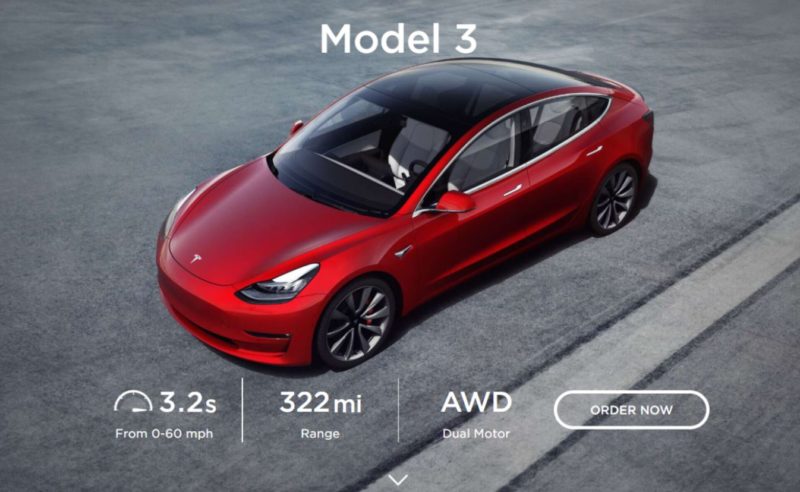
[Source: Tesla.com – Tesla’s bestseller]
The electric vehicles competition
Many new energy vehicle brands compete in China’s automotive market. Tesla is the world leader, but not the only producer. Now Tesla is worth 77 billion US dollars and has already produced 1 million vehicles. Their main product is the model 3. The success story of Tesla started the electric hype, however other brands have carried out the trend. In fact, Byton is not the only Chinese brand to tackle this market. In 2018, BYD sold 247,811 electric cars, more than Tesla the same year. The Chinese electric cars benefit from the Chinese cars market growth.
Are electric cars really the future?
Electric vehicles do have some drawbacks. The creation of batteries injures the environment. You cannot recharge it just anywhere.. Also, public transportation might be a more proficient solution. It seems that electric cars might be relevant only on a city scale to reduce atmospheric pollution there. Still we are only at the beginning of this technology and it might improve with time.
Byton wants to become a leading electric car brand. The Chinese brand’s destiny is tied with the Chinese authorities who want energy independence. As many Chinese car brands, Byton is lacking a powerful brand image. This is compulsory to win Western markets. Even if there are some pre-order, it is difficult yet to know if the brand will be able to become the electric leader. Still, it is another example highlighting of the Chinese industry is gaining in quality.
Author: Enzio Cacciotto
Listen to 100 China entrepreneur stories on China Paradigms, the China business podcast
Listen to China Paradigm on Apple Podcast
